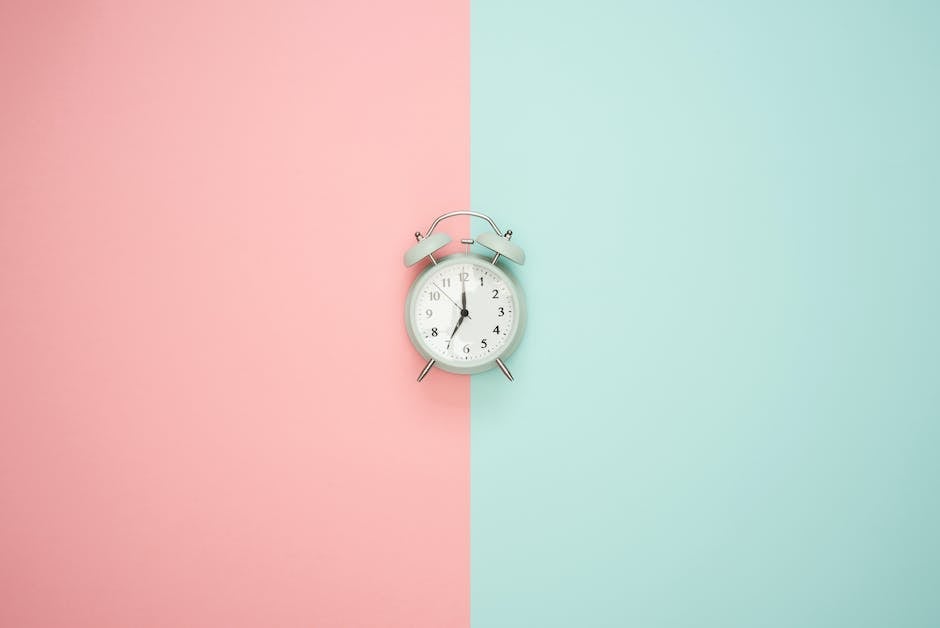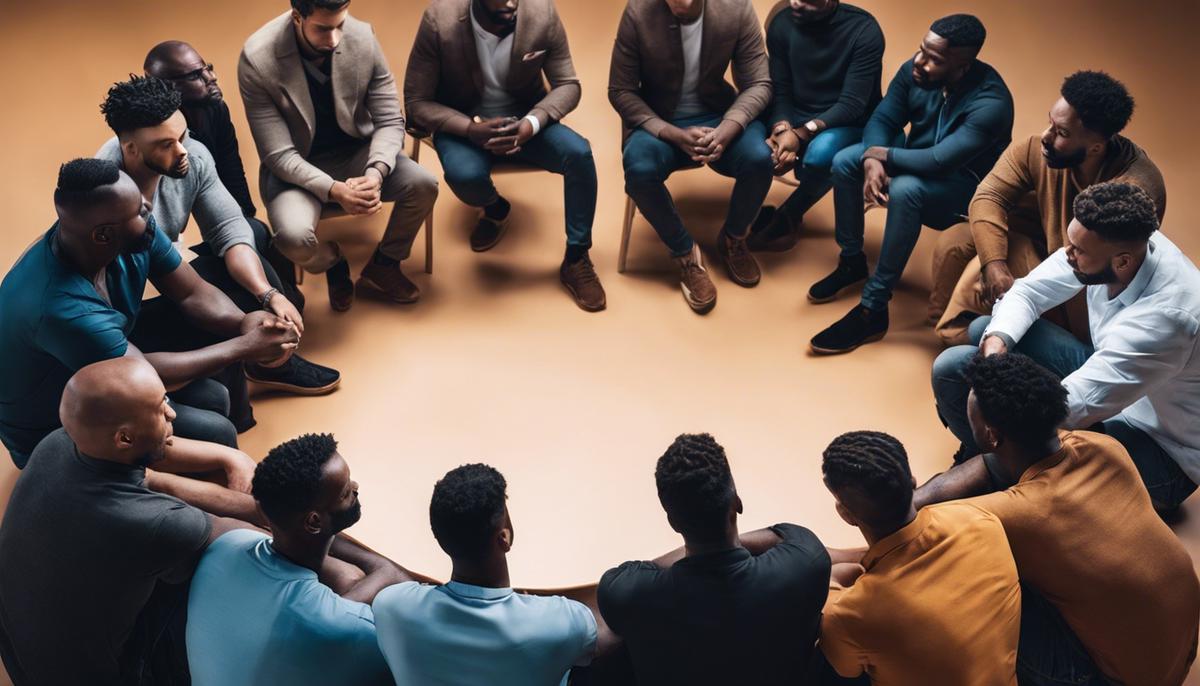The silent crisis of men’s mental health remains shrouded in the shadows of societal expectations and stigmatized vulnerability, yet its impact resonates through communities and families across the nation. As we delve into the complexities of this issue, we confront the sobering reality that men are suffering often in silence, hindered by cultural norms that discourage the expression of emotional pain. This essay sheds light on the reasons behind this hidden epidemic and underscores the paramount importance of specialized support systems that acknowledge and cater directly to the mental health needs of men. By understanding the statistics, societal pressures, and the very real threats posed by untreated mental health challenges, we are better equipped to construct a bridge of empathy and assistance through which men can confidently step out of the shadows and into a supportive network designed with their well-being in mind.
Understanding the Mental Health Crisis Among Men

Understanding the Rise in Men’s Mental Health Challenges
Hey there, fellow family-focused folks! Let’s chat about something a bit serious today, but oh-so-important – the mental health of the men in our lives. Whether it’s a spouse, a brother, a dad, or even a son, the well-being of our guys matters to every one of us.
So, what’s going on with men and mental health these days? Well, it seems like the pressures are piling on from every direction. Jobs want more hours, families need more attention, and don’t even get started on trying to squeeze in a bit of ‘me-time’. It can feel like juggling with too many balls in the air, and let’s be honest – everyone drops one now and then.
One of the biggie is the tough-guy image that society often expects men to live up to. ‘Real men don’t cry’ or ‘Man up!’ – sound familiar? These outdated phrases can make it really hard for guys to speak up when they’re feeling down. Instead, they might bottle up their emotions, and we all know that’s like shaking a soda can – eventually, it’s going to burst.
Work stress is another massive hurdle. With roles rapidly changing and job security sometimes wobbling like a toddler’s first steps, it’s no wonder anxiety and stress levels are through the roof. Plus, with technology keeping everyone connected 24/7, escaping the daily grind is tougher than ever. Remember when leaving the office meant leaving work behind for the day? Those were the days, right?
Then there’s the biggie: asking for help. For a lot of men, this is the equivalent of admitting defeat. They might think they’ve got to handle it all on their own – like a one-man band playing every instrument. But we all know that sometimes you need to reach out for a helping hand or a listening ear.
So, what can we do about it? Keep the conversations open and judgment-free. If the men in our lives know they can talk about what they’re feeling without being seen as less manly, they’re more likely to open up before things reach a breaking point. And let’s remember to cheer them on when they do share. It’s brave, it’s healthy, and it’s downright admirable.
Just like when our kids scrape a knee, we’re there with the bandages and kisses – let’s be there with a supportive shoulder and a listening heart when the men in our lives are dealing with something a little less visible but just as real. After all, every member of our family picture deserves to be happy and healthy, right down to the guys who might sometimes seem like they’ve got it all together.
And hey, if you know a dude who’s struggling, maybe share this with them. A little nudge toward healthier habits and open dialogue can make a world of difference. Here’s to happier, healthier families – where everyone gets the support they need and deserve. Keep shining, and keep sharing the love!

The Importance of Specialized Support for Men
Navigating the twists and turns of life brings its unique set of challenges for everyone, but for the dads, brothers, and partners out there, specialized support for mental health can be a game-changer. Men’s mental health often goes under the radar, but shedding light on it can pave the way for more vibrant family lives and healthier communities.
Specialized support for men’s mental health means tailoring assistance to their specific experiences and needs. This support can come in many forms, like therapy, support groups, and online resources that speak directly to men. For example, a space where fathers can discuss their struggles with parenting can alleviate the sense of going it alone. These types of resources validate personal experiences and create camaraderie, showing men they’re not isolated in their challenges.
Another critical area is addressing the emotional weight of societal roles. Support that focuses on the unique pressures men face can help unpack and dismantle harmful patterns. Whether it’s a counselor well-versed in male socialization or a workshop on managing pressures without sacrificing emotional well-being, these resources can set men on a path to a more balanced life.
Physical health is closely linked to mental well-being. Specialized programs can encourage and provide tools for physical activity, nutrition, and sleep – all essential components for a sound mind. Let’s remember, though, it’s not just about hitting the gym; it’s also understanding how physical health supports emotional stability. Tailored advice can guide men toward routines that foster both physical and mental resilience.
Lastly, prioritizing the development of emotional intelligence can revolutionize men’s mental health care. A toolkit for recognizing, expressing and managing emotions, especially designed for men, equips them to face daily pressures with a fresh perspective. It lays the groundwork for more fulfilling relationships and empowers men to lead by example, showing it’s okay to have feelings and needs.
By embracing specialized support, men can navigate their mental health journey with more clarity and confidence. This, in turn, benefits everyone around them, creating a ripple effect in our families and communities. It’s about time we champion the emotional well-being of all family members because a stronger, more emotionally intelligent home is something we all deserve.

Helplines and Their Role in Mental Health Support
Crisis Helplines: A Vital Player in Men’s Mental Health
When the going gets tough, where do the tough get going? This isn’t just a catchy turn of phrase—it’s a reminder of the crucial role crisis helplines play in bolstering the mental health of men who may feel cornered by life’s challenges. Now, we all know the struggles don’t come with a how-to manual, but guess what? Crisis helplines just might be the next best thing.
Let’s zero in on one of the superhero cape-wearing resources in mental health—crisis helplines. These helplines serve as a beacon of hope, lighting up paths when things seem dark for men battling mental health storms. Think about it: total confidentiality, advice from trained pros, and you don’t even have to leave your couch. These helplines are like a silent buddy, always there, no matter the hour or the hurdle.
In times of crisis, a helpline offers immediate relief—someone to listen without judgment. For men who’ve been riding solo, trying to dodge the “tough it out” stereotype, this is a game changer. A friendly voice can ease the moment’s intensity, giving clarity and practical steps to manage the crisis at hand.
But crisis helplines aren’t just about crisis prevention; they’re stepping-stones to long-term support networks. They can direct callers to other resources, services, and communities where men can foster healthy coping strategies and routines. It’s all about getting the right tools for the job.
In the hustle of balancing the checkbook and the demands of being superdad, carving out time for self-care often slips through the cracks. It’s not because it’s not important—it’s just that there seems to be always something “more pressing” to attend to. Crisis helplines can gently nudge men toward recognizing the value of their own mental health.
Moreover, these helplines are vital in bridging the gap between needing help and actually getting it. They cut through the noise, make it accessible, and most importantly, they toss the “walk it off” mentality out the window.
Think of crisis helplines as the unsung heroes in the fight to bolster men’s mental health. They remind us that it’s okay not to have all the answers, and seeking help isn’t a hit on one’s machismo—rather, it shows strength and the courage to put well-being first.
So as we champion the men in our lives, let’s amplify the message that it’s more than alright to pick up the phone. It’s not just about getting through the night. It’s about greeting the next day armed with hope and the realization that no one is alone in this journey.
When next you cross paths with friends, family, or even a stranger who may be staring down a tough spot, please pass it on: crisis helplines are here to support, guide, and uplift. Remember, behind every helpline number, there’s an ear ready to listen and a heart ready to understand. Let’s take that step together for the well-being of the incredible men in our lives.

Guidance on Encouraging Men to Reach Out
Embrace the Call for Help: Encouraging Men to Reach Out to Mental Health Helplines
A nod to our fathers, brothers, sons, and friends – there’s a lifeline woven with empathy and support, and it’s time we champion its use. In our bustling, get-it-done-yesterday world, it’s essential to highlight the oft-overlooked tool in the mental health toolkit for men — the humble yet mighty mental health helpline.
Understanding the critical role of these helplines is only the first step. To truly be the wind beneath the wings for the men in our circles, we need to engage in a dialogue that sheds the light of acceptance on the path to these resources. It starts with normalizing the conversation, talking about mental health helplines as readily as we discuss running to the store for milk. Let’s set the tone in our households and communities that reaching out is not just okay, but admirable and smart.
How do we take this from whispers to the main stage? Showcase real stories and real people. In our weekly family sit-downs, or at the neighborhood barbecue, give voice to powerful testimonials. When the men in our lives see other men speaking candidly about their successes with helplines, they can begin to see themselves in those stories.
Language matters. Let’s use words that embolden rather than belittle. Phrases like “checking in on you” or “you’re not alone” can become the life rafts that men cling to when the water gets rough. By changing our narrative, we invite men to change theirs, welcoming the idea of picking up the phone and dialing for support.
The role of media and technology comes into play here as well. With the wide reach of social media, let’s promote positivity by sharing content that highlights mental health resources. Create and engage with hashtags that make the search for help as simple as scrolling through a feed. On the home front, keep a list of helpline numbers in plain sight – perhaps a magnet on the fridge or a note near the family computer.
For those quieter moments, when men may reflect on their own, offer materials such as pamphlets or online articles that explore the benefits of mental health helplines. Sometimes, privacy allows contemplation, and contemplation leads to action.
In the end, it comes down to community – our warm, caring, and connected web of relationships. Imagine the collective strength if we all hold space for men to use these vital services without an ounce of hesitation or shame. Let’s embody the belief that seeking help is the ultimate testament to one’s inner fortitude. And remember, it’s not about the number of calls made but the quality of change each call can inspire.
To our wonderful men: mental health helplines are there, waiting with open arms, ready to support and uplift you. Here’s to stepping forward, for you and for us all, one phone call at a time.

Resources and Finding the Right Helpline
When it feels like the weight of the world is on their shoulders, knowing where to find a mental health crisis helpline can make all the difference for men and their loved ones. Despite all the hurdles, taking that first step towards finding help shows incredible strength.
Remember, mental health helplines are a vital resource for immediate support. They’re there to offer a listening ear and guide someone through tough moments, any time of day or night. These services are the first responders in the world of mental health, ensuring that no one has to face their darkest hours alone. Their role is crucial in helping individuals find their footing when everything feels overwhelming.
Opening up the conversation about mental health is essential, and one way to do that is by sharing stories. Hearing from others who’ve reached out to helplines can break down barriers and inspire others to do the same. They show that it’s not only okay to seek help but also brave and wise.
Kind and empowering words can be the nudge someone needs to dial that number. Let’s use language that lifts people up, reassuring them that reaching out for help is an act of self-care, not weakness. Supportive phrases and positive affirmations can resonate deeply with someone struggling in silence.
Media and technology have the power to spread awareness about available resources. With just a few clicks, helpline numbers and information can be shared across social media platforms, reaching thousands in seconds. This visibility is crucial because you never know who in your online community might need that info.
Providing easy access to helpline numbers and materials is fundamental. Placing stickers in community centers bookmarks in libraries, and posters in workplaces can place life-saving numbers right at someone’s fingertips. Accessibility can be a life-changer.
Fostering a community that stands behind men seeking help strengthens the collective resolve to face mental health challenges head-on. Communities that support mental health provide a safety net, encouraging individuals to share their struggles without fear of judgment.
Acknowledging the strength and courage it takes to seek help can open the doors for many who are hesitant. By emphasizing the bravery required to reach out, men can view the act of calling a helpline as a step towards resilience and recovery.
Encouraging men to push past those feelings of hesitation and shame is crucial. It’s time to debunk the myths that seeking help is a sign of weakness or that emotional challenges should be silently endured.
Every call to a helpline has the potential to be transformative. Each connection made can be the start of a journey back to wellness, impacting not just the individual but also their loved ones and the wider community. Let’s make sure every man knows he’s not alone and that help is always just a phone call away. You can also check other articles on Stress Management Tactics For Men In Business.
Although we have been speaking primarily on Men’s mental health, you could also benefit from some of our articles on prostate cancer symptoms, especially for men approaching 40.

The path toward healing and mental wellness for men is not a solitary journey, but a collective endeavor that requires the convergence of understanding, resources, and consistent encouragement. By equipping ourselves with the knowledge of available helplines and the competencies of those behind them, we commit to an environment where men can authentically voice their struggles. Through concerted efforts to dispel the stigmas and enhance the visibility of male mental health support channels, we validate the experiences of countless men and affirm the necessity of creating conduits of compassionate care. The road to mental wellness is one we must pave with collective intent, ensuring that every step taken by those in need is met with unwavering support and understanding.
Finally, thank you for learning about Supporting Men’s Mental Health – Tips & Resources, it is important that men help men as women will sympathize with you but don’t have the male perspective at their disposal. Find out more about how you can learn more and also support men’s mental health groups at the NIH of Mental Health.
Live chat support is also available through 988 Suicide & Crises Lifeline.
If you are a veteran, Contact the Veterans Crisis Line or text 838255 or get 24/7 Online Chat support here.
